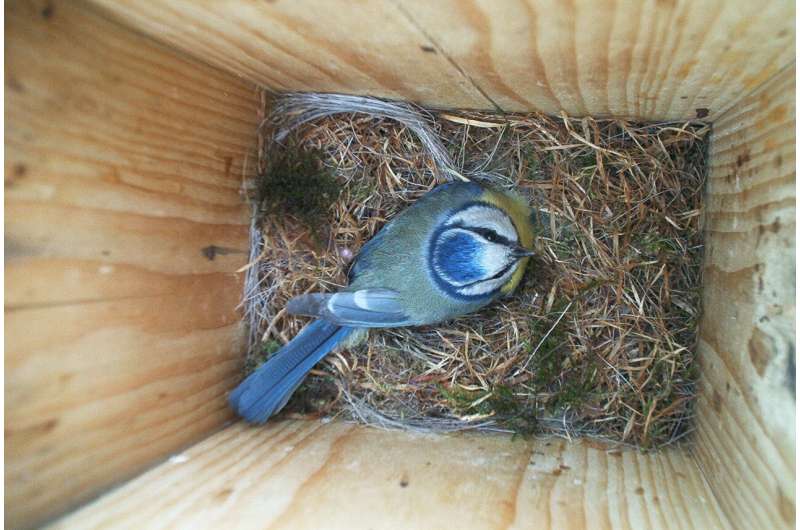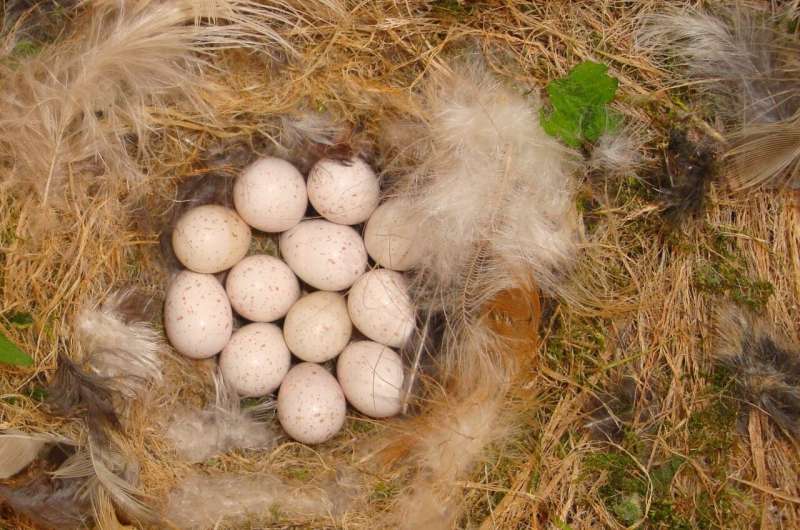This article has been reviewed according to Science X's editorial process and policies. Editors have highlighted the following attributes while ensuring the content's credibility:
fact-checked
peer-reviewed publication
trusted source
proofread
Older male blue tits out-compete young males when it comes to extra-marital breeding

Young male blue tits are less successful in fathering offspring outside their breeding pair, not because of a lack of experience, but because they are outcompeted by older males, Bart Kempenaers and colleagues from the Max Planck Institute for Biological Intelligence in Germany report in a study published in the open-access journal PLOS Biology.
Many birds form breeding pairs but will also mate and produce offspring outside of that pairing—known as "extra-pair" paternity. Inexperienced males in their first year of breeding are less likely to father extra-pair offspring than adult males, but it is unclear whether their poor performance is because of competition with older males, or because of a lack of skills or experience.
Between 2007 and 2021, researchers studied the breeding behavior of a wild population of blue tits (Cyanistes caeruleus) living in nest boxes in a German forest, using radio-frequency identification technology, behavioral observations, and DNA testing. Then, in 2022, the team relocated almost all the adult males from the population. They compared the extra-pair breeding success of young males in this altered population with data from the previous 15 years.
In the absence of competition from adult males, 33% of young males fathered at least one extra-pair offspring, compared to just 13% on average in years when adult males were present. Their extra-pair breeding success matched that of adult males in normal conditions.

These results suggest that young males' failure to father extra-pair offspring is due to competition with adult males, rather than a lack of experience or maturity. Adult males may outcompete young males for a variety of reasons. They might fare better in fights over females, they might invest more energy in extra-pair mating, females may find them more attractive, or a combination of these factors might be at play, the authors say.
The authors add, "Our study indicates that the generally observed low extra-pair siring success of first-year males is due to competition with older males. This age effect is thus mediated by the social environment, at least in the blue tit."
More information: Schlicht E, Gilsenan C, Santema P, Türk A, Wittenzellner A, Kempenaers B (2024) Removal of older males increases extra-pair siring success of yearling males, PLoS Biology (2024). DOI: 10.1371/journal.pbio.3002584
Journal information: PLoS Biology
Provided by Public Library of Science




















